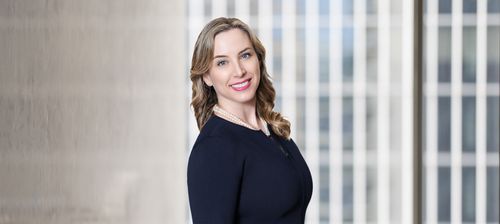Blog
NY Attorney General Suffers First Major Defeat in COVID-19 Price Gouging Case
Blog
October 1, 2020
New York Attorney General Letitia James has made the prosecution of price gouging offenses a top priority during the COVID-19 pandemic. However, the AG’s Office hit its first major roadblock on September 23 when the New York Supreme Court dismissed its case against a wholesaler that was accused of doubling the price for Lysol Disinfectant Spray during the pandemic. The court’s decision, which is the first to apply New York’s price gouging laws in the context of COVID-19, may shed light on some of the obstacles that the AG will face as other pandemic-related price gouging cases move forward.
New York’ Price Gouging Framework
As discussed in our previous blog post, price gouging is mostly governed by state law, and the exact contours of the offense vary by state. New York’s recently amended price gouging statute, General Business Law Section 396-r, defines price gouging as the sale or offer to sell “goods [or] services vital and necessary for the health, safety and welfare of consumers or the general public” “for an amount which represents an unconscionably excessive price” “during any abnormal disruption in the market” for such goods.[1]
Unlike most state laws which restrict price increases beyond a certain threshold (e.g., 10% in California, 25% in Alabama), New York does not prescribe any specific threshold. Instead, price increases are prohibited in New York if “the amount of the excess in price is unconscionably extreme,” or depends “an exercise of unfair leverage or unconscionable means,” or both.[2] To make a prima facie showing that a price increase constitutes price gouging, the AG must show that either:
- “The amount charged represents a gross disparity between the price of the goods or services which were the subject of the transaction and their value measured by the price at which such goods or services were sold or offered for sale by the defendant in the usual course of business immediately prior to the onset of the abnormal disruption of the market;”[3] or
- “The amount charged grossly exceeded the price at which the same or similar goods or services were readily obtainable in the trade area.”[4]
Like many states, New York provides an affirmative defense for price increases that directly result from increased supply chain or manufacturing costs.
The New York Supreme Court’s Lysol Decision
In a complaint filed on May 27, 2020, the New York AG accused Quality King Distributors (“Quality King”) and its CEO of price gouging its sales of Lysol disinfectant products to grocery and discount stores throughout New York, and requested injunctive relief. The AG’s Office alleged that from November 2019 to January 2020—before the onset of the COVID-19 state of emergency—Quality King sold Lysol Spray at a consistent median monthly price of about $4.25 per can. But beginning in February, as the pandemic was sweeping the nation, Quality King began incrementally raising its prices. By April, Quality King had allegedly sold more than 46,000 cans of Lysol Spray, the median unit price for which had nearly doubled, and the per-unit profit margins for which had nearly quintupled. Notably, despite the fact that the AG accused Quality King of illegally raising prices on a range of Lysol products (e.g., spray cans of different sizes, wipes, etc.), the complaint only includes specific allegations about price increases for 19 oz. spray cans.
A hearing on Quality King’s motion to dismiss was held on September 22, 2020. The next day, Judge Eileen A. Rakower of the New York Supreme Court ruled in Quality King’s favor, dismissing the AG’s claims. In a two-page written decision, the court rejected the AG’s allegations regarding Quality King’s price increases, finding that they “were not, as a matter of law, unconscionable or overall extreme.” Judge Rakower further explained that “[w]hile there may have been isolated instances of price increases for Lysol 19 to certain customers which were seemingly increased to the extreme, Quality King did not uniformly raise their prices on Lysol products to these customers.” Consequently, there was not a “gross price disparity” in Quality King’s pricing during and immediately before the crisis.
The court also found that, in light of other Lysol products for sale at the time (spray cans of different sizes, wipes, etc.), there was no evidence that Quality King used any unconscionable or unfair leverage to extract grossly excessive prices.
Notably, the court also recognized that Quality King’s prices during the relevant months were competitive with prices offered by competitors in the same market. As such, the AG could not establish that there was a gross disparity between Quality’s King’s prices and market prices.
Finally, the court observed that, contrary to the AG’s assertions, Quality King’s purchase costs increased during the relevant time period, which justified price hikes.
Key Takeaways
- This decision reflects that high burden of proof that the state must satisfy to sustain price gouging claims. It can also serve as a blueprint for possible defenses that may be available to defendants in future price gouging cases.
- Under this decision, courts may scrutinize the relevant sales to determine whether price increases were imposed uniformly, and a lack of uniformity could weight against a finding of unconscionable conduct.
- Price gouging claims can be at least partially defended with a showing that price increases followed increases in market prices.
For more information on price gouging, please see Winston’s recent webinar on the topic.
View all of our COVID-19 perspectives here. Contact a member of our COVID-19 Legal Task Force here.
[1] As recently amended, New York’s price gouging law addresses price increases for goods and services including: “consumer goods and services used, bought or rendered primarily for personal, family or household purposes;” “essential medical supplies and services used for the care, cure, mitigation, treatment or prevention of any illness or disease,” and “any other essential goods and services used to promote the health or welfare of the public.” N.Y. Gen. Bus. L. § 396-R.
[2] N.Y. Gen. Bus. L. § 396-R.
[3] Id.
[4] Id.
Related Professionals
Related Professionals
This entry has been created for information and planning purposes. It is not intended to be, nor should it be substituted for, legal advice, which turns on specific facts.


